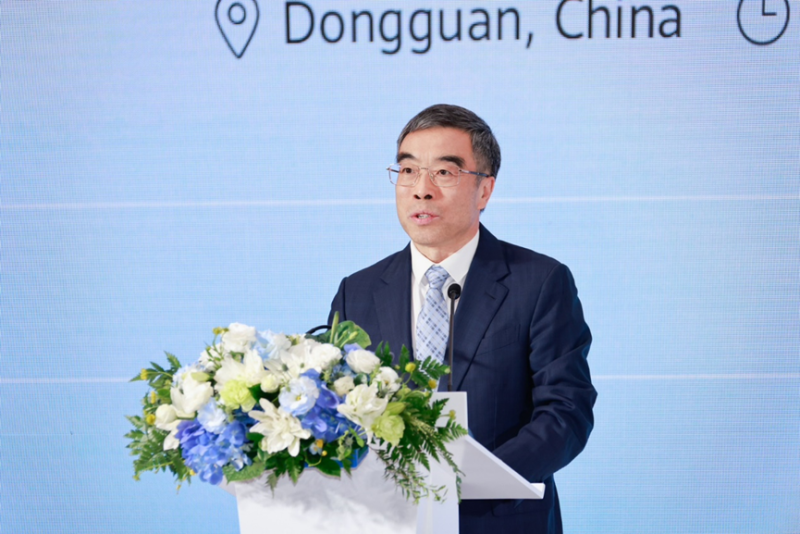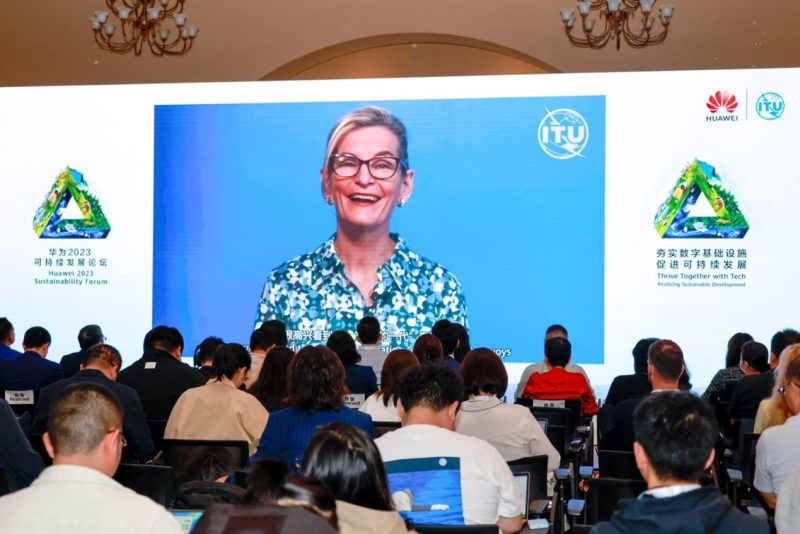Huawei, one of the world's leading providers of information and communications technology (ICT), has long been committed to creating a full connected, sustainable, and intelligent world, with the aim to bring connectivity to over 120 million people across remote areas in over 80 countries by 2025. In 2022, Huawei joined the International Telecommunication Union's Partner2Connect Digital Coalition to help provide ICT infrastructure to rural areas around the world, granting underserved communities access to smart education, remote healthcare, and other digital services that can lay the foundation for future economic prosperity.
At Huawei's third annual Sustainability Forum in Dongguan, China, held under the theme 'Thrive Together with Tech: Realizing Sustainable Development', Huawei brought together its executives and representatives from multiple organizations, including the International Telecommunication Union (ITU) and the UN Sustainable Development Solutions Network, to discuss the importance and successes of utilizing technology to increase connectivity without compromising the health of our planet.
"Next-generation digital infrastructure, like connectivity and computing power, are as vital to driving socio-economic development as our physical infrastructure, just like roads. This new infrastructure will be crucial to sustainable development for all of society." said Dr. Liang Hua, Huawei's Chairman of the Board, during the forum's opening speech. "Computing is a core driver of productivity in the digital economy. Faster rollout of computing infrastructure will help speed up digital transition in many industries and promote deeper integration of digital and real economies. This can further promote global economic stability and sustainable development."
Doreen Bogdan-Martin, Secretary-General of ITU, also spoke at the forum, highlighting how digital technologies can accelerate the achievement of the UN Sustainable Development Goals (SDGs): "Currently, only 15% of the UN SDGs are on track for 2030. Digital technologies can accelerate the achievement of these targets by up to 70% if new and innovative technologies are properly harnessed. Let's not choose between tech and sustainable development. We need both! Let's thrive together with tech. Let's build a digital future that advances progress for people and the planet."
Jeff Wang, President of Huawei's Public Affairs and Communications Department, noted: "Huawei is proud to partner with ITU for this important cause, and to see young visionaries making a tangible impact for digital inclusion all across the world. The support that participants will receive includes financial contributions to their projects, mentoring from ITU and Huawei experts, and opportunities to participate in joint events."
"Through ITU and Huawei's joint efforts, young people will learn, contribute and lead in the digital world," said Dr Cosmas Luckyson Zavazava, Director of ITU's Telecommunication Development Bureau. "Digital is a prerequisite for accelerating the achievement of the SDGs. We want youth to push the envelope on the evolving global digital ecosystem and make their transformative contributions. I thank Huawei for this great partnership, and I look forward to seeing the global impact of this innovative project."
The P2C Coalition, launched by ITU, fosters meaningful connectivity and digital transformation globally, prioritizing remote communities in countries and regions that lack digital access. Huawei signed the global commitment last year, setting goals to bring connectivity to about 120 million people in remote areas in more than 80 countries by 2025. So far, Huawei has provided 2,066 training opportunities in the ITU's first P2C partner country Cambodia, in collaboration with local ministries and universities.
In Thailand, Huawei's commitment to digital inclusion is also evident in its Digital Bus project initiated in 2021. This project reinforces digital inclusiveness by providing free and tailored digital training to 10 rural provinces, 40 remote communities, and over 3,000 rural children, workers, and SMEs. Through this initiative, Huawei contributes to the development of digital skills and STEM education, fostering a more inclusive learning environment. In addition, Huawei joined forces with Thailand's Office of The National Broadcasting and Telecommunications Commission (NBTC) for the USO 2.0 project in acknowledgment of the digital divide prevalent in rural areas. In addition, the company remains committed in advancing its mission to "Grow in Thailand, Contribute to Thailand" and to "Lead Everyone Forward, Leave No One Behind", with a dedicated focus on facilitating Thailand's digital transformation and adoption of green technologies.
Source: Carl Byoir & Associates

